#Georg Zeppenfeld
Explore tagged Tumblr posts
Text
Impressioni da Bayreuth 2023 - Parsifal
Foto ©Enrico Nawrath Il motivo principale della mia visita di quest’ anno ai Bayreuther Festspiele era il desiderio di assistere alla nuova produzione del Parsifal, Continue reading Untitled
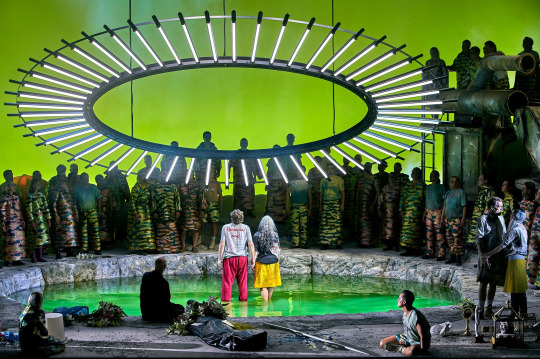
View On WordPress
#andreas schager#bayreuth#canto#critica#derek welton#garanca#georg zeppenfeld#jay scheib#jordan shanahan#opera#pablo heras-casado#parsifal#teatro#tobias kehrer#wagner
1 note
·
View note
Text
BAYREUTH 2023: DER FLIEGENDE HOLLÄNDER ( Zeppenfeld-Teige-Mužek-Volle;Lyniv)
Michael Volle (Der Holländer), Nadine Weissmann (Mary), Georg Zeppenfeld (Daland) und Elisabeth Teige (Senta) im 2. Aufzug der Oper “Der fliegende Holländer” in Bayreuth. (© Enrico Nawrath/Festspiele Bayreuth/dpa) Avui us parlaré de la transmissió radiofònica (meravellós treball de la BR–Klassik, transmès al món) de Der Fliegende Holländer. La producció que no veiem, és la signada per…
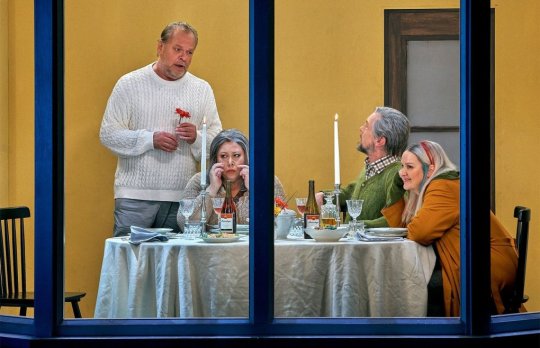
View On WordPress
#Attilio Glaser#Bayreuther Festpiele#Chor und Orchester der Bayreuther Festspiele#Der Fliegende Holländer#Elisabeth Teige#Georg Zeppenfeld#Michael Volle#Nadine Weissmann#Oksana Lyniv#Richard Wagner#Tomislav Muzek
0 notes
Text
The Top 40 Most Popular Operas, Part 1 (#1 through #10)
A quick guide for newcomers to the genre, with links to online video recordings of complete performances with English subtitles.
Mozart's Die Zauberflöte (The Magic Flute) (Wolfgang Amadeus Mozart)
The most frequently performed opera worldwide: Mozart's fascinating, philosophical fairy tale opera, which appeals to both children and adults.
San Francisco Opera, 2010 (Piotr Beczala, Dina Kuznetsoca, Christopher Maltman, Erika Miklosa, Georg Zeppenfeld; conducted by Donald Runnicles)
Verdi's La Traviata
Tragic romance with social commentary, based on Alexandre Dumas fils' novel The Lady of the Camellias, which was also the basis for the classic 1936 Greta Garbo film Camille.
Los Angeles Opera, 2006 (Renée Fleming, Rolando Villazon, Renato Bruson; conducted by James Conlon)
Bizet's Carmen
The fiery tragedy of a seductive, free-spirited Spanish Romani woman and her loves, with some of opera's most iconic music.
Royal Opera House, Covent Garden, 2006 (Anna Caterina Antonacci, Jonas Kaufmann, Ildebrando d'Arcancelo, Norah Ansellem; conducted by Antonio Pappano)
Puccini's La Bohéme
Relatable slice-of-life romance that blends comedy and tragedy. The inspiration for the popular musical RENT.
Studio film, 1965 (Mirella Freni, Gianni Raimondi, Rolando Panerai, Adriana Martino; conducted by Herbert von Karajan)
Mozart's Le Nozze di Figaro (The Marriage of Figaro)
The best loved of Mozart's Italian operas, a great comedy of class conflict and sexual intrigue.
Glyndebourne Festival Opera, 1994 (Gerald Finley, Alison Hagley, Renée Fleming, Andreas Schmidt, Marie-Ange Todorovich; conducted by Bernard Haitink)
Puccini's Tosca
Political intrigue, lust, and bloodshed amid the splendor of Rome – some call it a "shabby little shocker," others call it thrilling.
Vienna State Opera, 2019 (Sondra Radvanovsky, Piotr Beczala, Thomas Hampson; conducted by Marco Armiliato)
Mozart's Don Giovanni
Arguably the greatest retelling of the legend of Don Juan, with comedy, drama, and Mozart's glorious music.
Salzburg Festival, 1954 (Cesare Siepi, Otto Edelmann, Elisabeth Grümmer, Anton Dermota, Lisa della Casa, Erna Berger, Walter Berry Deszö Ernster; conducted by Wilhelm Furtwängler)
Puccini's Madama Butterfly
Puccini's iconic "Japanese tragedy." Controversial from a racial standpoint, but a tearjerker nonetheless, and the inspiration for the musical Miss Saigon.
Feature film, 1995 (Ying Huang, Richard Troxell, Ning Liang, Richard Cowan; conducted by James Conlon)
Rossini's Il Barbiere di Siviglia (The Barber of Seville)
The lighter and more madcap prequel to The Marriage of Figaro, known as the quintessential comic opera.
Vienna State Opera, 2019 (Rafael Fingerlos, Juan Diego Flórez, Margarita Gritskova, Paolo Rumetz, Sorin Coliban; conducted by Evelino Pidò)
Verdi's Rigoletto
A richly melodic tragedy of a hunchbacked jester, his daughter, a lecherous duke, and a self-fulfilling curse.
Studio film, 1982 (Ingvar Wixell, Luciano Pavarotti, Edita Gruberova; conducted by Riccardo Chailly)
#opera#top 40#part 1#top 10#video#complete performances#english subtitles#die zauberflöte#the magic flute#la traviata#carmen#la boheme#le nozze di figaro#the marriage of figaro#tosca#don giovanni#madama butterfly#il barbiere di siviglia#the barber of seville#rigoletto
136 notes
·
View notes
Text
JONAS KAUFMANN
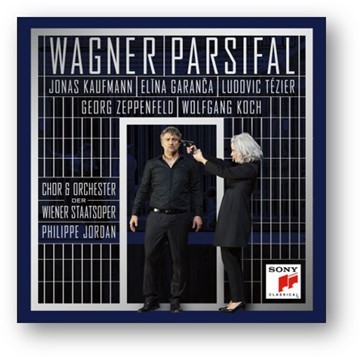
PARSIFAL
Jonas Kaufmann canta el papel principal en una nueva grabación en directo de Parsifal de Wagner que Sony Classical publicará el 1 de marzo. Procede de las representaciones en la Ópera Estatal de Viena bajo la dirección de Philippe Jordan con Elīna Garanča como Kundry, Georg Zeppenfeld como Gurnemanz y Ludovic Tézier como Amfortas.
Resérvalo AQUÍ
Las reacciones de la prensa tras la primera noche en la primavera de 2021 fueron unánimemente positivas. Der Standard habló de "un festín de buen canto" e incluso de "un reparto sensacional", mientras que Die Zeit alabó los logros de "un conjunto de lujo". Una y otra vez, los críticos mencionaron la riqueza de matices de la interpretación musical. Como el "inocente" Parsifal, Jonas Kaufmann fue elogiado por su capacidad para modular entre una mezza voce hechizante y los arrebatos dramáticos más estremecedores. Dos cantantes interpretaban sus papeles por primera vez: Elīna Garanča hacía su esperado debut como Kundry, al que aportó una soberana autoridad, mientras que Ludovic Tézier cantaba su primer Amfortas. Tanto Tézier como Georg Zeppenfeld como Gurnemanz aportaron a sus papeles una belleza bel canto con el espíritu que el propio Wagner siempre había apreciado. Aclamado internacionalmente como Hans Sachs en Die Meistersinger von Nürnberg de Wagner, Wolfgang Koch ofreció una interpretación fascinante como Klingsor.
La producción se había esperado con impaciencia, pero tuvo que presentarse -y grabarse- sin público cuando finalmente se presentó en abril de 2021, en plena pandemia de coronavirus. El director Kirill Serebrennikov se inspiró en la frase "Aquí el tiempo se convierte en espacio" y ambientó la obra en una prisión. Serebrennikov había pasado varios años bajo arresto domiciliario y en libertad condicional, y en la época en cuestión tenía prohibido salir de su patria, por lo que tuvo que dirigir su nueva producción a distancia, mientras un equipo de colaboradores trabajaba en la puesta en escena en Viena. Su concepción de la obra que el Süddeutsche Zeitung llamó una "ópera sobre el tema de la liberación" y que el Der Standard describió como "un drama de múltiples capas sobre las relaciones humanas" resultó convincente. Die Welt habló de una fascinante "distopía futurista".
No es de extrañar que el último drama musical de Wagner siga fascinando al público hasta nuestros días gracias a su misticismo relacionado con el Grial, su simbolismo cristiano y sus cuestiones subyacentes sobre la culpa y la expiación. Tampoco debemos olvidar su vena narrativa de gran densidad armónica, su complejo uso de la tonalidad y los colores tonales, su avance psicoanalítico sobre las obras anteriores de Wagner, su simbolismo altamente metafórico y detallado y, por último, pero no por ello menos importante, su duración. Todos estos elementos representan un tremendo desafío musical tanto para la orquesta como para los solistas.
Philippe Jordan ya había dirigido toda una serie de otras producciones de la obra en otros lugares, incluido el Festival de Bayreuth de 2012, por lo que estaba íntimamente familiarizado con las exigencias musicales de la partitura. Pero, como ha observado el director de orquesta de origen suizo, "Todo director de Parsifal debe hacer algo más que limitarse a guiar la interpretación, también debe dejar que ciertos aspectos sigan su propio curso si quiere hacer justicia a una obra de proporciones tan monumentales".
El Parsifal de Wagner con Jonas Kaufmann, Elīna Garanča, Georg Zeppenfeld, Ludovic Tézier, Wolfgang Koch, el Coro y la Orquesta de la Ópera Estatal de Viena bajo la dirección de Philippe Jordan será editado por Sony Classical en CD y formatos digitales el 1 de marzo de 2024.
0 notes
Text
DIA 27 DE JULHO DE 2023: BAYREUTH EM COLARES -. TRANSMISSÃO VÍDEO DA ESTREIA DE PARSIFAL NO STAGE + - ALTA QUALIDADE DO ELENCO E DO MAESTRO, IMAGENS IMPACTANTES : foi bastante bem recebida pelo público do Festspielhaus a nova produção de Parsifal (mesmo pelos que não tiveram óculos de realidade aumentada ). Eu tive oportunidade de ver o streaming na plataforma da DG.Como é o novo Parsifal ? O novo Parsifal é sumptuoso decorativo, infantil, lúdico e desprovido de ideias profundas. .O impacto visual é a arma essencial do estreante americano Jay Scheib, No terceiro acto as imagens abrem uma perspectiva narrativa,- o mundo é áspero e enferrujado. Além de esqueletos de árvores apocalípticas uma enorme escavadora ladeia a cratera com líquido verde bilioso, a fonte sagrada. Atmosfera apocalíptica sob o signo da destruição ambiental?.Na dramaturgia surpreende o encontro intensamente erótico entre um Gurnemanz sem gravitas e a personagem feminina dupla de Kundry . O meu amigo argentino Pablo González Aguilar director da Lírica Libre interpreta como podendo acontecer no sonho de um ou ambos, ou pelo menos nas suas fantasias ou desejos, e que culpam o velho e piedoso cavaleiro. Serviria como um aviso para a consciência de Gurnemanz, ou para todos os homens que buscam - e ostentam santidade? .Excelente desempenho de Eliana Garanca, Andreas Schager, Georg Zeppenfeld, Derek Walton e Jordan Shanahan. (Garanca já tinha sido uma excelente Kundry em Viena em 2021). Uma surpresa foi, sem dúvida, Pablo Heras-Casado filmado dentro do fosso sem batuta e em T-shirt dirigindo o primeiro prelúdio . Que me lembre nunca um maestro tinha sido filmado durante uma apresentação. dentro do poço de Bayreuth. Foi bela a direção do espanhol com tempos rápidos ( 1,37 no primeiro acto )mas nunca perdendo a melodia ou os detalhes. O famoso Achim Freyer disse sobre Parsifal: "Esta obra continua a ser um mistério absoluto e deve permanecer assim, caso contrário, a imaginação do espectador será destruída". Por outras palavras: o espectador deve criar sua própria "realidade aumentada". Assim é, pelo menos na visão de um protegido de Brecht .
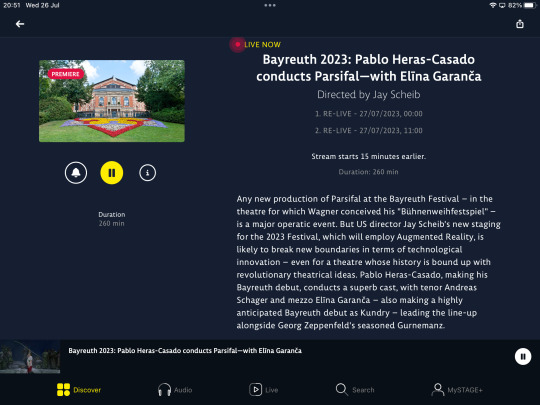
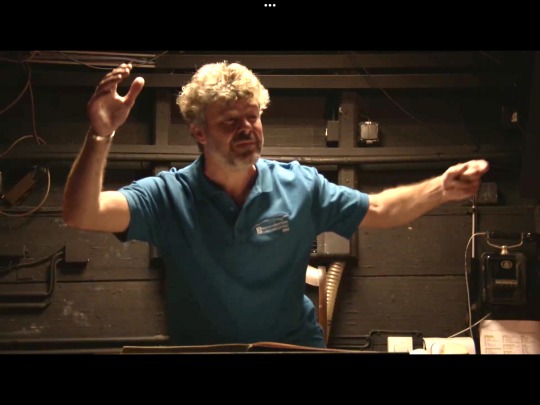
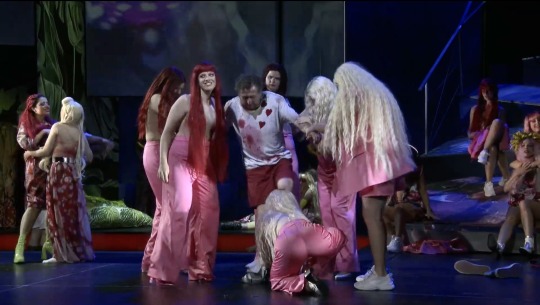
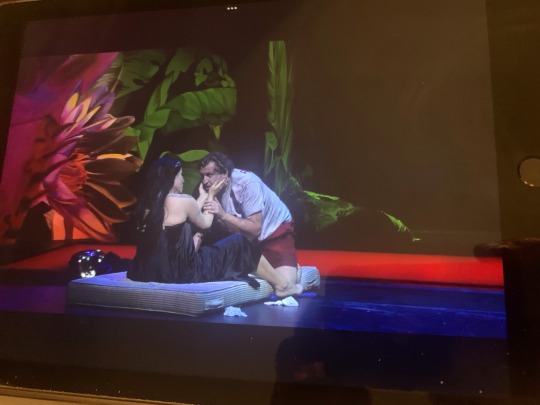


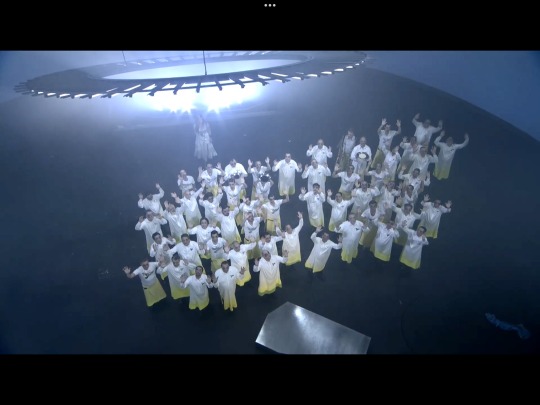
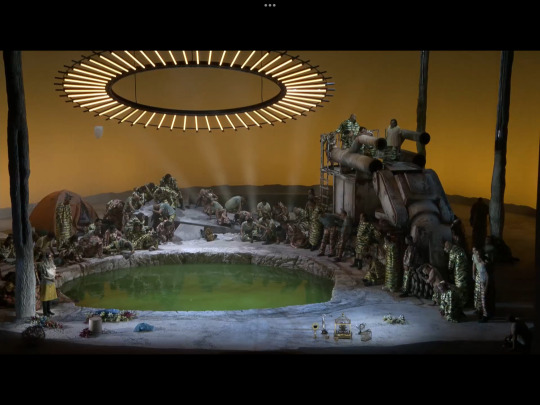

0 notes
Text
Georg Zeppenfeld isn’t cast, directors are in need of a bass and he just appears
7 notes
·
View notes
Photo

Das Gedenkkonzert für NELLO SANTI im Opernhaus Zürich 🎼
. Am 6. Februar 2020 verstarb Nello Santi im Alter von 88 Jahren in Zürich. Das Opernhaus Zürich verlor mit ihm eine herausragende Künstlerpersönlichkeit, die über 60 Jahre mit dem Opernhaus zutiefst verbunden war. In einem Konzert am Samstag, 28. März, 19 Uhr wird den zahlreichen Freunden und Wegbegleitern die Gelegenheit gegeben, dem Maestro zu gedenken. . 👍Jetzt den ganzen Artikel auf Fashionpaper lesen: https://www.fashionpaper.ch/music-kino/das-gedenkkonzert-fuer-nello-santi-im-opernhaus-zuerich/
#benjamin bernheim#chor#classic#fabio luisi#fashionpaper#gedenkkonzert#georg zeppenfeld#giuseppe verdi#hibla gerzmava#klassik#klassische musik#konzert#künstlerpersönlichkeit#künstler#maestro#messa da requiem#nello santi#opernhaus#opernhaus zürich#zürich#philharmonie#philharmonia#gedenken#arabella#billet#tenor#sopran#zurich#mezzosopran
0 notes
Text
♫ Bayreuther Festspiele 2017: Tristan und Isolde - (unfreiwillig) komisch
Tristan und Isolde 2017: Neben aller Tragik dieser Liebesgeschichte gibt es Momente (unfreiwilliger) Komik, die das Drama abmildern. Tristan und Isolde fassen sich an den Händen wie Kinder zum Ringelreihen, halten an einer Seite in den Händen den Gift(becher)flachmann, gießen ihn gemeinsam mit Schwung in die ausgehöhlten Hände der anderen Seite und ... Read the full article
#bayreuth festival#Bayreuther Festspiele#Christian Thielemann#Claudia Mahnke#Georg Zeppenfeld#Iain Paterson#Katharina Wagner#Kritik#Petra Lang#Raimund Nolte#Rezension#Richard Wagner#Stephen Gould#Tristan und Isolde
1 note
·
View note
Text
Impressioni da Bayreuth 2023 - Der fliegende Holländer
Foto ©Enrico Nawrath Per uno come me, innamorato della musica di Wagner sin da quando ero un ragazzino, il viaggio a Bayreuth costituisce ogni anno una tappa estiva obbligatoria. Continue reading Untitled

View On WordPress
#bayreuth#canto#critica#der fliegende holländer#elisabeth teige#georg zeppenfeld#michael volle#oksana linyv#opera#tcherniakov#teatro#tomislav muzek#wagner
1 note
·
View note
Text
BAYREUTH 2023: DER RING DES NIBELUNGEN
Pietari Inkinen Sense “la tortura” del visionament de la producció de Valentin Schwarz, amb la direcció musical de Pietari Inkinen, que l’estiu passat va haver de renunciar a l’estrena de la nova producció va haver de ser substituït a darrera hora per Cornelius Meister i amb alguns canvis significatius en rols fonamentals en cadascun dels quatre títols, he escoltat per ràdio aquesta tetralogia…
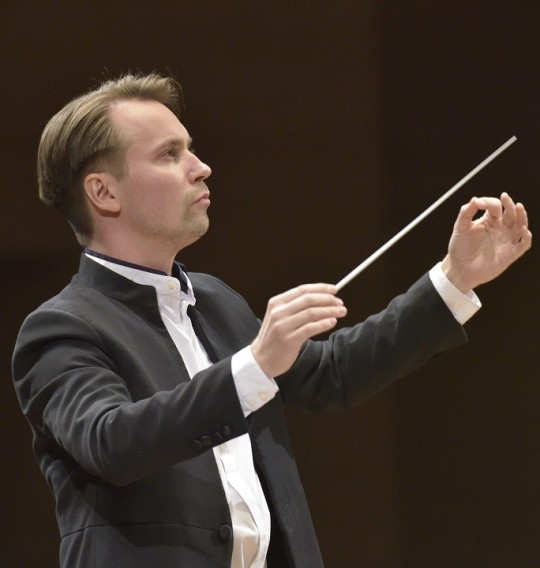
View On WordPress
#Aile Asszonyi#Alexandra Steiner#Andreas Schager#Arnold Bezuyen#Attilio Glaser#Ólafur Sigurdarson#Bayreuther Festspielorchester und Festpielchor#Brit-Tone Müllertz#Catherine Foster#Christa Mayer#Claire Barnett-Jones#Daniel Kirch#Daniela Köhler#Das Rheingold#Der Ring des Nibelungen#Die Walküre#Elisabeth Teige#Evelin Novak#Georg Zeppenfeld#Hailey Clark#Jens-Erik Aasbø#Kelly God#Klaus Florian Vogt#Marie Henriette Reinhold#Michael Kupfer-Radecky#Mika Karès#Okka von der Damerau#Pietari Inkinen#Raimund Nolte#Richard Wagner
0 notes
Text
Opera on YouTube
I've shared links to complete opera performances before, but I love to share them, so I thought I'd make a few masterposts.
These list are by no means the only complete filmed performances of these operas on YouTube, but I decided that ten links for each opera was enough for now.
By the way, some of the subtitles are just a part of the video, while others require you to click CC to see them.
Die Zauberflöte (The Magic Flute)
Hamburg Philharmonic State Opera, 1971 (Nicolai Gedda, Edith Mathis, William Workman, Christina Deutekom, Hans Sotin; conducted by Horst Stein; English subtitles)
Ingmar Bergman film, 1975 (Josef Köstlinger, Irma Urrila, Håkan Hagegård, Birgit Nordin, Ulrik Cold; conducted by Eric Ericson; sung in Swedish; English subtitles)
Salzburg Festival, 1982 (Peter Schreier, Ileana Cotrubas, Christian Bösch, Edita Gruberova, Martti Talvela; conducted by James Levine; Japanese subtitles)
Bavarian State Opera, 1983 (Francisco Araiza, Lucia Popp, Wolfgang Brendel, Edita Gruberova, Kurt Moll; conducted by Wolfgang Sawallisch; English subtitles)
Metropolitan Opera, 1991 (Francisco Araiza, Kathleen Battle, Manfred Hemm, Luciana Serra, Kurt Moll; conducted by James Levine; English subtitles)
Paris Opera, 2001 (Piotr Beczala, Dorothea Röschmann, Detlef Roth, Desirée Rancatore, Matti Salminen; conducted by Ivan Fischer; no subtitles)
Royal Opera House, Covent Garden, 2003 (Will Hartman, Dorothea Röschmann, Simon Keenlyside, Diana Damrau, Franz Josef Selig; conducted by Colin Davis; no subtitles) – Act I, Act II
La Monnaie, Brussels, 2005 (Topi Lehtipuu, Sophie Karthäuser, Stephan Loger, Ana Camelia Stefanescu, Harry Peeters; conducted by René Jacobs; French subtitles)
Kenneth Branagh film, 2006 (Joseph Kaiser, Amy Carson, Benjamin Jay Davis, Lyubov Petrova, René Pape; conducted by James Conlon; sung in English)
San Francisco Opera, 2010 (Piotr Beczala, Dina Kuznetsoca, Christopher Maltman, Erika Miklósa, Georg Zeppenfeld; conducted by Donald Runnicles; English subtitles)
La Traviata
Mario Lanfrachi studio film, 1968 (Anna Moffo, Franco Bonisolli, Gino Bechi; conducted by Giuseppe Patané; English subtitles)
Glyndebourne Festival Opera, 1987 (Marie McLaughlin, Walter MacNeil, Brent Ellis; conducted by Bernard Haitink; Italian and Portuguese subtitles)
Teatro alla Scala, 1992 (Tiziana Fabbricini, Roberto Alagna, Paolo Coni; conducted by Riccardo Muti; English subtitles)
Royal Opera House, Covent Garden, 1994 (Angela Gheorghiu, Frank Lopardo, Leo Nucci; conducted by Georg Solti; Spanish subtitles)
Teatro Giuseppe Verdi, 2003 (Stefania Bonfadelli, Scott Piper, Renato Bruson; conducted by Plácido Domingo; Spanish subtitles)
Salzburg Festival, 2005 (Anna Netrebko, Rolando Villazón, Thomas Hampson; conducted by Carlo Rizzi; no subtitles)
Los Angeles Opera, 2006 (Renée Fleming, Rolando Villazón, Renato Bruson; conducted by James Conlon; English subtitles)
Opera Festival St. Margarethen, 2008 (Kristiane Kaiser, Jean-Francois Borras, Georg Tichy; conducted by Ernst Märzendorfer; English subtitles)
Teatro Real di Madrid, 2015 (Ermonela Jaho, Francesco Demuro, Juan Jesús Rodríguez; conducted by Renato Palumbo; English subtitles)
Teatro Massimo, 2023 (Nino Machiadze, Saimir Pirgu, Roberto Frontali; conducted by Carlo Goldstein; no subtitles)
Carmen
Herbert von Karajan studio film, 1967 (Grace Bumbry, Jon Vickers; conducted by Herbert von Karajan; English subtitles)
Vienna State Opera, 1978 (Elena Obraztsova, Plácido Domingo; conducted by Carlos Kleiber; English Subtitles)
Francisco Rosi film, 1982 (Julia Migenes, Plácido Domingo; conducted by Lorin Maazel; English subtitles)
Metropolitan Opera, 1987 (Agnes Baltsa, José Carreras; conducted by James Levine; English subtitles)
London Earls Court Arena, 1989 (Maria Ewing, Jacque Trussel; conducted by Jaques Delacote; English subtitles)
Royal Opera House, Covent Garden, 1991 (Maria Ewing, Luis Lima; conducted by Zubin Mehta; English subtitles) – Acts I and II, Acts III and IV
Arena di Verona, 2003 (Marina Domashenko, Marco Berti; conducted by Alain Lombard; Italian subtitles)
Royal Opera House, Covent Garden, 2006 (Anna Caterina Antonacci, Jonas Kaufmann; conducted by Antonio Pappano; English subtitles) – Acts I and II, Acts III and IV
Metropolitan Opera, 2010 (Elina Garanca, Roberto Alagna; conducted by Yannick Nézet-Séguin; English subtitles) – Acts I and II, Acts III and IV
Opéra-Comique, 2023 (Gaëlle Arquez, Frédéric Antoun; conducted by Louis Langrée; English subtitles)
La Bohéme
Franco Zeffirelli studio film, 1965 (Mirella Freni, Gianni Raimondi; conducted by Herbert von Karajan; English subtitles)
Metropolitan Opera, 1977 (Renata Scotto, Luciano Pavarotti; conducted by James Levine; no subtitles)
Teatro alla Scala, 1979 (Ileana Cotrubas, Luciano Pavarotti; conducted by Carlos Kleiber; no subtitles)
Opera Australia, 1993 (Cheryl Barker, David Hobson; conducted by Julian Smith; Brazilian Portuguese subtitles)
Teatro Regio di Torino, 1996 (Mirella Freni, Luciano Pavarotti; conducted by Daniel Oren; Italian subtitles)
Teatro alla Scala, 2003 (Cristina Gallardo-Domâs, Marcelo Alvarez; conducted by Bruno Bartoletti; Spanish subtitles)
Zürich Opera House, 2005 (Cristina Gallardo-Domâs, Marcello Giordani; conducted by Franz Welser-Möst; no subtitles)
Robert Dornhelm film, 2009 (Anna Netrebko, Rolando Villazón; conducted by Bertrand de Billy; no subtitles)
Opera Australia, 2011 (Takesha Meshé Kizart, Ji-Min Park; Shao-Chia Lü; no subtitles)
Sigulda Opera Festival, 2022 (Maija Kovalevska, Mihail Mihaylov; conducted by Vladimir Kiradjiev; English subtitles)
#opera#youtube#complete performances#die zauberflöte#the magic flute#la traviata#carmen#la boheme#wolfgang amadeus mozart#giuseppe verdi#georges bizet#giacomo puccini
37 notes
·
View notes
Text
JONAS KAUFMANN

PARSIFAL
Jonas Kaufmann canta el papel principal en una nueva grabación en directo de Parsifal de Wagner que Sony Classical publicará el 1 de marzo.
Resérvalo AQUÍ
La grabación procede de las representaciones en la Ópera Estatal de Viena bajo la dirección de Philippe Jordan con Elīna Garanča como Kundry, Georg Zeppenfeld como Gurnemanz y Ludovic Tézier como Amfortas.
Las reacciones de la prensa tras la primera noche en la primavera de 2021 fueron unánimemente positivas. Der Standard habló de "un festín de buen canto" e incluso de "un reparto sensacional", mientras que Die Zeit alabó los logros de "un conjunto de lujo". Una y otra vez, los críticos mencionaron la riqueza de matices de la interpretación musical.
Como el "inocente" Parsifal, Jonas Kaufmann fue elogiado por su capacidad para modular entre una mezza voce hechizante y los arrebatos dramáticos más estremecedores. Dos cantantes interpretaban sus papeles por primera vez: Elīna Garanča hacía su esperado debut como Kundry, al que aportó una soberana autoridad, mientras que Ludovic Tézier cantaba su primer Amfortas.
Tanto Tézier como Georg Zeppenfeld como Gurnemanz aportaron a sus papeles una belleza bel canto con el espíritu que el propio Wagner siempre había apreciado. Aclamado internacionalmente como Hans Sachs en Die Meistersinger von Nürnberg de Wagner, Wolfgang Koch ofreció una interpretación fascinante como Klingsor.
La producción se había esperado con impaciencia, pero tuvo que presentarse -y grabarse- sin público cuando finalmente se presentó en abril de 2021, en plena pandemia de coronavirus. El director Kirill Serebrennikov se inspiró en la frase "Aquí el tiempo se convierte en espacio" y ambientó la obra en una prisión. Serebrennikov había pasado varios años bajo arresto domiciliario y en libertad condicional, y en la época en cuestión tenía prohibido salir de su patria, por lo que tuvo que dirigir su nueva producción a distancia, mientras un equipo de colaboradores trabajaba en la puesta en escena en Viena. Su concepción de la obra que el Süddeutsche Zeitung llamó una "ópera sobre el tema de la liberación" y que el Der Standard describió como "un drama de múltiples capas sobre las relaciones humanas" resultó convincente. Die Welt habló de una fascinante "distopía futurista".
No es de extrañar que el último drama musical de Wagner siga fascinando al público hasta nuestros días gracias a su misticismo relacionado con el Grial, su simbolismo cristiano y sus cuestiones subyacentes sobre la culpa y la expiación. Tampoco debemos olvidar su vena narrativa de gran densidad armónica, su complejo uso de la tonalidad y los colores tonales, su avance psicoanalítico sobre las obras anteriores de Wagner, su simbolismo altamente metafórico y detallado y, por último, pero no por ello menos importante, su duración. Todos estos elementos representan un tremendo desafío musical tanto para la orquesta como para los solistas.
Philippe Jordan ya había dirigido toda una serie de otras producciones de la obra en otros lugares, incluido el Festival de Bayreuth de 2012, por lo que estaba íntimamente familiarizado con las exigencias musicales de la partitura. Pero, como ha observado el director de orquesta de origen suizo, "Todo director de Parsifal debe hacer algo más que limitarse a guiar la interpretación, también debe dejar que ciertos aspectos sigan su propio curso si quiere hacer justicia a una obra de proporciones tan monumentales".
El Parsifal de Wagner con Jonas Kaufmann, Elīna Garanča, Georg Zeppenfeld, Ludovic Tézier, Wolfgang Koch, el Coro y la Orquesta de la Ópera Estatal de Viena bajo la dirección de Philippe Jordan será editado por Sony Classical en CD y formatos digitales el 1 de marzo de 2024.
Sony Music Masterworks se compone de los sellos Masterworks, Sony Classical, Milan Records, XXIM Records y Masterworks Broadway. www.sonymusicmasterworks.com/.
0 notes
Text
Traversing the Verdi Canon #3: Nabucco
At last I have arrived at the opera that really made Verdi’s name, Nabucodonosor (more commonly billed as Nabucco)!
I don’t have a lot to say about Verdi’s music that hasn’t already been said. This is probably his first fully quintessentially own voice. This is what made him an icon and hero of the Risorgimento. It’s beautiful, bombastic dramatic dynamite.
Experience: this came pretty early in my Verdi discovery process and I really liked it, although after about 2018 I didn’t really watch, listen to, or think about it so much again until the spring of 2021, when I watched the Arena di Verona’s marvelous metatheatrical 2017 staging and fell in love with this opera all over again.
The production I watched was from the Opernhaus Zurich in 2019, directed by Andreas Homoki, conducted by Fabio Luisi (beloved), and with an excellent principal quintet: Michael Volle (Nabucco), Anna Smirnova (Abigaille, also I was extremely surprised to discover that she’s only 39, which would have made her TWENTY-EIGHT in the iconic Met 2010 Don Carlo. I thought she was older), Georg Zeppenfeld (Zaccaria), Veronica Simeoni (Fenena), and Benjamin Bernheim (Ismaele). Really, cast from strength. The musical forces for this were wonderful.
Now, the production. I have mixed feelings about it, but overall I really liked it. The production can’t really decide what time period it’s in, and normally I absolutely hate that, but it wasn’t super-strident here: the Assyrians here are dressed like it’s the 1840s while the Hebrews are dressed like it’s the 1940s. Make of that what you will.
What I really liked about this production was the emphasis on the relationship and differences between Abigaille and Fenena. In this production, we see them grow from childhood to (spoiler if you’ve never seen the opera) the end of Abigaille’s life and we see how their dynamic changes, particularly in the face of trauma.
Trauma? Yes. The production opens with a staged overture during which Nabucco’s wife/Fenena’s mother/Abigaille’s supposed mother dies of a heart attack when the girls are both very young. Shortly thereafter, Nabucco begins having seizures. The girls, playful up to this point, begin to develop distinct and diverging traits: Fenena shoulders the burden of supporting those around her while Abigaille begins focusing on the crown and shutting out those around her. This disparity grows over the course of the opera, and we get the sense that Fenena is desperate to find emotional connection with anyone and everyone around her while Abigaille also desperately wants emotional connection but out of fear and trauma is unable to let herself be open to such connection. The decision to frequently have both of the women onstage when only one of them is supposed to be onstage worked surprisingly well for this, although other instances of “having characters onstage when they shouldn’t” were less effective, most notably the decision to have Nabucco and Abigaille onstage during “Va, pensiero”. (Why?)
Other things that didn’t really work or vibe: Fenena being stripped down to her undergarments by the Hebrews at the end of Zaccaria’s Act I aria, Nabucco shooting the High Priest in lieu of the “idol being destroyed”, I have mixed feelings about the dancing courtiers during Abigaille’s big scene, also upset that there were some cuts (but this is mainly “not doing cabalettas twice”).
However, overall this was excellent and played to the best of this work.
12 notes
·
View notes
Text
Wagnerrant Review #5 - Not enough Holländer
Work: Der Fliegende Holländer Bayreuther Festspiele Date of performance: 25.07.2021
Team Director: Dmitri Tcherniakov Conductor: Oksana Lyniv With: Georg Zeppenfeld, Asmik Grigorian, Eric Cutler, Marina Prudenskaya, Attilio Glaser, John Lundgren
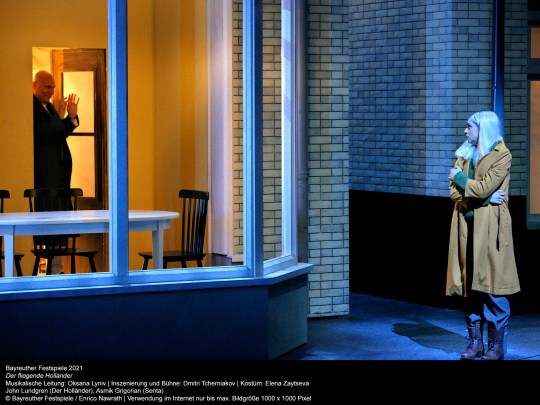
Trigger warning: S*icide mention, mass m*rder mention.
Review: @dichterfuerstin
Dmitri Tcherniakov’s Der Fliegende Holländer looks more like the latest episode of Netflix Germany’s Dark than like an old sailor’s tale. The audience is presented with the foggy image of a small town. Grey brick buildings, grey pavement, grey streetlight. Just the rubber boots that are part of most of the costumes pay a small tribute to the original setting. Maybe the small town is a fishing village. And just like the sets, the story told on stage has little to do with what’s written in Wagner’s libretto.
It’s a crime story, rather than a mystery. Instead of being a sea captain, the Holländer appears as a man referred to as “H” who according to the writings on stage has a “strange, returning dream”. This dream, or rather memory, is shown during the overture. “H” is shown as a little boy whose mother has an affair with no one less than Daland himself. When her affair is discovered, the village shuns H’s mother to the point where she commits suicide in front of her son. The set is a little too calm for how booming and fast Oksana Lyniv’s overture is, and it’s radically different to what Wagner wrote in his libretto, but it works with the music pretty well during the first two acts. He remembers Daland, Daland has a vague idea who the stranger is. And Mary, excellently sung by Marina Prudenskaya and in this production upgraded to Daland’s wife and Senta’s (Step-)mother, seems to know exactly. She carries the Holländer’s picture around and is visibly scared of him. Add to this the perfectly spooky and mysterious atmosphere. It takes a while for the audience to realise that the “dream” is in fact a memory that the wondering of how much of it is true and what’s going to happen is always prevalent, especially every time the Holländer walks past the house where his mother died.
The characterisations in Tcherniakov’s production are on point. Mary is just strict enough, Georg Zeppenfeld’s Daland is not only audibly full in character, his facial expressions are on point throughout the entire opera. Of course, the modern setting does make him basically trading away Senta more awkward and actually less understandable. Especially since Senta is very young. Daland’s daughter doesn’t seem much older than sixteen thanks to Asmik Grigorian’s brilliant acting. She’s way younger than the Holländer, even Erik seems too old for her. But she’s sassy. She’s impudent, she smokes, she dyes her hair. She isn’t that dreamy girl carried away by the tale of the mysterious dutchman, she rather seems to mock him, and yet falls in love when she meets him in at dinner. Asmik Grigorian conveys all of this not only in her acting but also in her voice. Of course, she sounds older, but it doesn’t matter. The sound is clear, the diction well, and the Festpiel-debut successful. John Lundgren’s Holländer is equally well-acted. Though he doesn’t do much. The Holländer’s a very passive character, spending most of his time watching, and being strange. He constantly seems out of place thanks to his white sweater in contrast to the rather brown costumes everyone else, including Senta, wears. Making the Holländer stand out is a standard decision, but it is very well executed by costume designer Elena Zaytseva. Lundgren’s voice fits as well, apart from becoming audibly strained in act three. He isn’t as booming as most Holländer’s, rather pretty, but that is perfect for this characterisation, where the Holländer isn’t punished for cursing on God but traumatised because he saw his mother getting hounded until she killed herself. He isn’t even a captain, he’s alone. To the end of the opera, a handful of men he met at the pub who listened to him telling his story become his crew and get spared when the Holländer shoots into the crowd gathered on the town square to celebrate. For two hours the audience wonders where the production will lead. Will Senta die where the Holländer’s mother died? Will they die together as it’s written in the libretto? And in the end, it’s a mass shooting and arson committed by the Holländer. Although this ending makes perfect sense for the Holländer the way he’s set up in Tcherniakov’s production, it’s a somewhat disappointing ending. Daland doesn’t even appear on stage. Shouldn’t he have some kind of reaction to the Holländer’s doing? For the first time Grigorian’s acting isn’t sufficient enough for the audience to understand what she’s feeling, the production doesn’t really provide good answers. And while making Mary Daland’s wife made her more important, the character didn’t have enough to do to explain why it’s her who eventually shoots the Holländer and then has to be cared for by Senta. The ending is an ending for a crime story. It’s a thriller, but not the one Wagner intended. For the Holländer, the focus should be a little more on the bond between Senta and the Dutchman. But on it’s own, the story told by Dmitri Tcherniakov is interesting and thought-through.
At least Oksana Lyniv’s conducting stays consistently emotional. The 43-years-old Ukranian conductor makes her Festspieldebut in this production, as the first ever woman to conduct an opera at the Bayreuther Festspiele, and she does it well. She manages to remain unfazed by the many interruptive noises in this production. Be it chairs or tables collapsing in act one, or gunshots in act three, and she’s singer-friendly. Maybe a little too singer-friendly, sometimes the orchestra does seem too much in the background. But overall, she does an amazing job. Her overture stands out the most, but the entirety of her Holländer is nothing short of beautiful. And fulfils the most admirable task of holding orchestra, soloists and chorus together, which is especially difficult this year: Due to the pandemic, half of the chorus acts on stage, the other half sings in the chorus-hall and their singing gets transmitted into the audience via speakers. And somehow this needs to sound natural – and be on time. Lyniv and chorus master Eberhard Friedrich work together well, so the audience doesn’t hear that something’s different this year.
This by the way also isn’t noticeable in the production. Neither does the stage seem empty nor are there six feet distance between every two singers. It’s a standarf production, and just as it’s standard for Bayreuth, director Dmitri Tcherniakov got booed by the audience. Undeserved, it’s a captivating and interesting to watch production, but it won’t make history as one of the strongest Bayreuth-productions either - it just isn’t enough Holländer.
11 notes
·
View notes
Text
Munich Opera

Guests can enjoy drinks in the bright conservatory. Lehel Metro Station is just 650 ft from the Hotel Opera. Trains run to Munich Central Station in 5 minutes. Hofbrauhaus Beer Hall is a 10-minute walk away. Altstadt - Lehel is a great choice for travelers interested in Opera. Sightseeing in Munich. The “Bavarian State Opera” you can say that this is one of the world's leading opera houses who can look back on more than 350 years of opera and ballet history. With an amount that reaches around 600,000 guests, who visit more than 450 events a year. Within one season, over 40.
Munich Opera Festival 2021
Roland Schimmelpfennig
Peter Sloterdijk
Cached
Munich Opera 2022
Munich is perhaps the most attractive of Germany’s cities, and has always been a major centre for opera. The Nationaltheater is at the moment enjoying a reputation as one of the finest houses in Europe: ‘La Scala may be grander…, Vienna more stately, the Metropolitan more prestigious… but for all-round excellence in pretty well every department, Munich’s Nationaltheater has the edge, both in matters of creature comforts and sheer dedication to the art’.
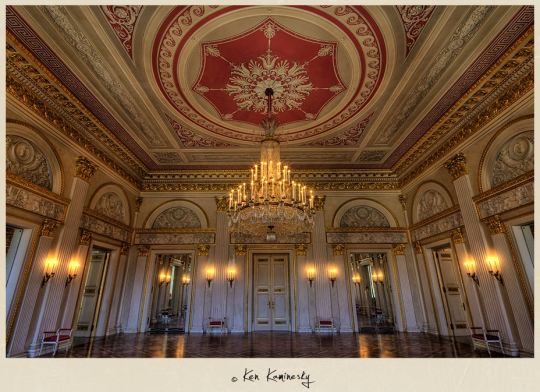
Opera apart, Munich is widely considered to be the most agreeable city in Germany in which to live, and rivals Berlin for wealth of art and historic architecture. Munich is everyone’s favourite German city. The seat of the Wittelsbachs, who ruled Bavaria from 1255 until 1918 as Counts, Dukes, Electors and, from 1806, as Kings, Munich was a city which grew up around a court, not one spawned by trade or industry. Consequently, artistically and architecturally it is still one of the best-endowed centres in Europe.
Day 1
London to Munich. Fly at c. 12.45pm from London Heathrow to Munich. Tour the city by coach to see much of the best of Munich’s historic architecture: Neo-Classical Königsplatz, historicist Ludwigstrasse, Jugendstil houses and the modern Gasteig Arts Centre. The first of four nights in Munich.
Day 2

After the daily talk, set out on a walking tour which culminates in a visit to the Alte Pinakothek, one of the world’s greatest Old Master galleries. The afternoon is free, though a visit to the Residenz with its exquisite Rococo Theatre by Cuvillies is recommended. Early evening performance at the Nationaltheater: Tannhäuser (Wagner) with Simone Young (conductor), Romeo Castellucci (director), Georg Zeppenfeld (Hermann, Landgrave of Thuringia), Klaus Florian Vogt (Tannhäuser), Christian Gerhaher (Wolfram von Eschenbach), Dean Power (Walther von der Vogelweide), Peter Lobert (Biterolf), Ulrich Reß (Heinrich der Schreiber), Martin Snell (Reinmar von Zweter), Lise Davidsen (Princess Elisabeth), Daniela Sindram (Venus), Sarah Gilford (A Young Shepherd)
Day 3
Drive out to Nymphenburg, summer retreat of the ruling Wittelsbachs. Set in an extensive park, there is a spreading Baroque palace and several delightful garden pavilions, the apogee of Rococo. Free time in the afternoon, opportunity to visit more of Munich’s many outstanding art collections. Evening performance at the Nationaltheater: Turandot (Puccini) with Jader Bignamini (conductor), Carlus Padrissa (director), Anna Netrebko (Princess Turandot), Ulrich Reß (The Emperor Altoum Timur), Alexander Tsymbalyuk (Timur, the deposed King of Tartary), Yusif Eyvazov (The Unknown Prince, Calaf), Golda Schultz (Liù), Boris Prýgl (Ping), Kevin Conners (Pang), Andres Agudelo (Pong), Bálint Szabó (A Mandarin), Andres Agudelo (The Prince of Persia).
Day 4
Morning walk to see more of the city’s treasures, including the vast Gothic cathedral and the Asamkirche, a Baroque masterpiece. Free time in the afternoon. Early evening performance at the Nationaltheater: Tristan and Isolde (Wagner) with Kirill Petrenko (conductor), Krzysztof Warlikowski (director), Jonas Kaufmann (Tristan), Mika Kares (King Marke), Anja Harteros (Isolde), Wolfgang Koch (Kurwenal), Sean Michael Plumb (Melot), Okka von der Damerau (Brangäne), Dean Power (A shepherd), Christian Rieger (A steersman), Manuel Günther (A young sailor).
Day 5
Munich to London. Fly from Munich to London Heathrow, arriving at c. 1.45pm.
Patrick Bade
Historian, writer and broadcaster. He studied at UCL and the Courtauld and was senior lecturer at Christies Education for many years. He has worked for the Art Fund, Royal Opera House, National Gallery, V&A. He has published on 19th- and early 20th-century painting and on historical vocal recordings. His latest book is Music Wars: 1937–1945.
Price, per person
Two sharing: ��3,290 or £3,070 without flights. Single occupancy: £3,630 or £3,410 without flights.
Included

Air travel (Euro Traveller) with British Airways; accommodation as described below; breakfasts, 2 dinners and 1 lunch with wine; private coach for the excursions and transfers; admissions; tips for waiters, drivers and guides; all state and airport taxes; the services of the lecturer and tour manager.
Music
Tickets (top category) for 3 operas are included.
Accommodation
Platzl Hotel München: 4-star hotel located in the heart of the old city, a 5-minute walk from the opera house. Single rooms are doubles for sole use.
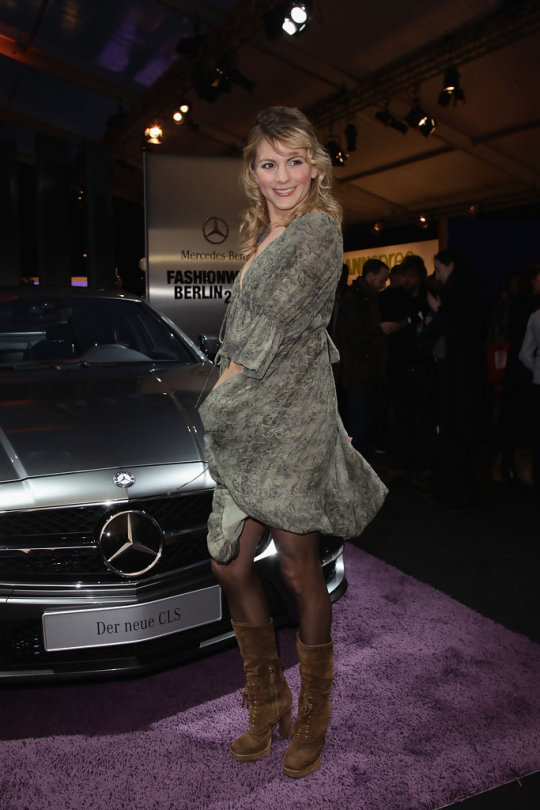
How strenuous?
The tour involves a lot of walking and standing in museums and churches and should not be attempted by anyone who has difficulty with everyday walking and stair-climbing. Average distance by coach per day: 11 miles.
Munich Opera Festival 2021
Group size
Between 10 and 22 participants.
Travel advice
Roland Schimmelpfennig
Before booking, please refer to theFCDO websiteto ensure you are happy with the travel advice for the destination(s) you are visiting.
Peter Sloterdijk
'It promised to be a very fine tour and it lavishly fulfilled its promise.'
'The four operas were all very different with performers of the highest calibre – indeed, quite outstanding. The productions were in our opinion very thought provoking and innovative; we were greatly impressed.'
'Outstanding performers give outstanding performances. Your selection leaves nothing to be desired. To see both Kaufmann and DiDonato live in one week. Magic!'
Dates & prices
Cached
from £3,290
Book this tour
Munich Opera 2022
You may also be interested in...

1 note
·
View note
Text
1DE AGOSTO DE 2022: A CLÁSSICA NEBLINA MATINAL , TRANSMISSÃO RÁDIO DE “ A VALQUIRIA “ DO FESTIVAL DE BAYREUTH 2022, UMA BIOGRAFIA DE MINNA WAGNER E FIGOS COM PRESUNTO APERITIVO INFALÍVEL : ontem num dia que começou com a clássica neblina matinal destas paragens a marca para este wagnerite foi a transmissão rádio de « A VALQUIRIA « do ANEL de Bayreuth 2022 conduzida pela conceituada estação germânica BR-KLASSIK. Não vejo imagens da encenação do jovem Valentin Schwarz ( ao que parece para meu benefício ) . Não fossem suficientes as muitas peripécias que antecederam a estreia deste Anel ontem Tomasz Konieczny o Wotan que substituiu o desistente Lundgren sofreu uma queda e teve de ser substituído no terceiro acto .O jump-in Michael Kupfer-Radecky, foi aplaudido entusiasticamente . De facto o espectáculo vocalmente foi excelente . Lise Davidsen foi uma fascinante Sieglinde com um poder impressionante e momentos altamente emocionais. Iréne Theorin cantou Brünnhilde de uma maneira igualmente poderosa mas com menos nuances . Klaus Florian Vogt como Siegmund foi um heldentenor com timbre quase brilhante demais. Simplesmente fantástico Georg Zeppenfeld como Hunding.O maestro Cornelius Meister conseguiu criar momentos altamente inspirados. Todavia em mudanças de tempo e transições, a orquestra às vezes fica presa e os metais precisariam de mais alguns ensaios de entonação. Não esqueçamos que o excelente director musical de Estugarda contratado para o Tristão foi chamado para está gigantesca tarefa pouco antes da estreia. ..Para terminar comprei em e-book a creditado biografia de Minna Wagner por Eva Rieger numa tradução para inglês da Universidade de Rochester.





0 notes